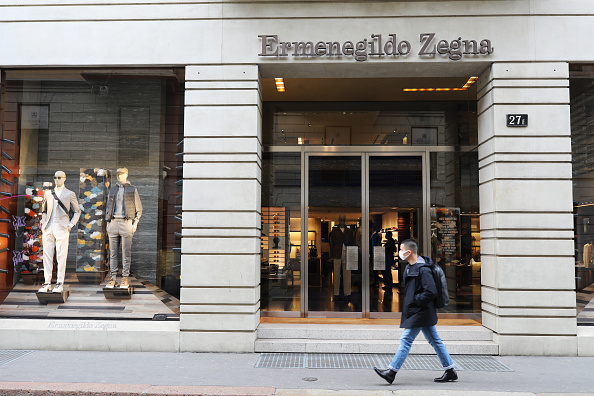Zegna boss: The suit is not dead – but the tie is

“Let me be clear – the suit is not dead. But the tie is!” That’s the view of Ermenegildo Zegna, CEO and chairman of the Italian luxury fashion house Zegna.
Speaking at the Financial Times’ business of luxury conference on Thursday, Zegna said knitwear was the “new tie” and demand for luxury leisurewear continues to thrive.
There have been signs City workers have opted for more casual work attire post-pandemic with suits falling out of fashion.
Bankers sporting Gucci loafers may also be a thing of the past as Zegna told FT editor Roula Khalaf that trainers were a way to “to add colour to a suit to make them more fun.”
More than half of Marks & Spencer stores across the country stopped stocking suits last summer.
“Covid hit fast forward on the trend to more casual dressing that was already in train so our smartwear is now more focused on smart separates — easy to wear, stylish smart clothing that can be worn in lots of different ways,” Wes Taylor, director of M&S menswear, said last August.
The Office for National Statistics (ONS) even threw men’s suits out of the basket of goods its statisticians use to calculate price hikes earlier this year.
However, reports of the suit’s death may be greatly exaggerated. Asos’ exec Matthew Dunn said that the retailer sold 280,000 suits sold last autumn/winter, up 83 per cent on the year prior.
Fraser Thorne, chief executive at Edison Group told CityA.M.: “The suit may not be dead, but it’s definitely in decline. Workwear was becoming less formal even before the pandemic, and suit sales have now dropped so significantly that the ONS no longer includes them as part of their inflation calculations.
“This doesn’t mean that offices will become entirely casual realms. I think workers, both men and women, have already found a crafty balance between looking smart and staying comfortable. Fashion labels would do well to update their products to reflect this, and to focus their marketing material on displaying alternative office-wear options.
“This isn’t just a short-term trend, which means it’s a massive opportunity for clothing retailers – who are facing a tough macroeconomic outlook – to secure more sales as people return to the office for the summer.”